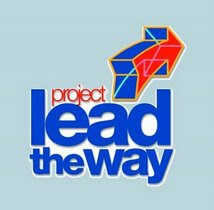Monday, January 26, 2009
PLTW Extends Deadline for New School Registration to March 13, 2009
Please visit this link for the online registration page: http://www.pltw.org/register/
Thursday, January 22, 2009
New Grant Opportunity --- Please note the following opportunity for schools already in PLTW or planning to join PLTW
New Grant Opportunity
HP Innovations in Education --Secondary School Districts – USA
For over 10 years, Hewlett Packard has offered PLTW schools the opportunity to obtain computers, printers and other hardware at a discount. Hewlett Packard is committed to education and is continuing to partner with Project Lead The Way not only by offering affordable technology but also by offering grant opportunities through special initiatives such as the HP Innovations in Education grant program. This program is open to schools across the country and is a competitive RFP process. PLTW schools have a great opportunity to obtain this comprehensive technology package and enhance their ability to deliver PLTW courses, courses that HP recognizes as an outstanding curriculum that can be maximized by the technology and training included in this special grant opportunity. Please see official announcement below:
HP Innovations in Education
Building on 5 years of experience with the HP Technology for Teaching grant program, HP has just announced a new grant opportunity entitled HP Innovations in Education. HP seeks proposals from school districts in the US that are pursuing the use of technology to enhance academic success in secondary school (middle school and/or high school) math and science. Each award, valued at more than $270,000, will consist of equipment, cash and professional development. Proposals that will be considered should describe how technology will be used to enable innovations in four areas – Leadership Capacity, Digital Learning Environments, the Secondary Student Design & Research Experience, and High-Tech Career Awareness. Visit www.hp.com/go/hpiie-usa for more information and to download the Request for Proposals. Applications are due March 30th.
HP seeks proposals from school districts pursuing the use of technology to enhance academic success in secondary school (middle school and/or high school) math and science. Proposals that will be considered will describe how technology will be used to enable innovations in four areas:
· Leadership Capacity – creating a network of school administrators and key teachers who implement innovative approaches to curriculum, instruction, and the use of technology to enhance math/science learning.
· Digital Learning Environments – using technology to fundamentally redesign the learning experience in ways that lead to increased student engagement and academic success; can include innovations in online learning, virtual worlds, gaming for learning, and simulations.
· The Secondary Student Design & Research Experience – making math and science real and relevant by involving secondary students in design and research challenges that address real needs in society; can include local and/or global service learning.
· High-Tech Career Awareness – engaging administrators, teachers, and students in ways that increase awareness and interest in high-tech college
degree programs and careers.
Please feel free to share this exciting news with Superintendents or Assistant Superintendents of Curriculum and Instruction. Here are the key facts:
· HP plans to fund approximately 25 secondary school districts in the USA.
· Each grant is valued at more than $270K in equipment, professional development, and cash.
· Proposals are due March 30th, 2009.
· Applicants are invited to visit www.hp.com/go/hpiie-usa to download the Request for Proposals, which describes all the important details
Wednesday, January 21, 2009
CT-PLTW Team in Real World Design Challenge
.JPG)
The state of Connecticut is proud to be one of the pilot states for the Real World Design Governor's Challenge. This challenge provides high school students, grades 9 – 12, the opportunity to work on real world engineering challenges in a team environment. The Department of Energy issued this years challenge which focuses on aeronautics and energy usage. The teams are now using engineering software programs to design and test the performance of a new fuel efficient wing for an aircraft. Connecticut has two teams vying for a chance to represent the state at the Real World Design Challenge National Finals in Washington, DC in March of this year. Team K-Five represents Kennedy High School in Waterbury, CT and is coached by Ken Ludwig. The students representing K-Five are Klejton Dinkollari, Lefter Dinkollari, Michael Matic, William Betances, and Jordan DeAngelis. Team Falcon represents Xavier High School of Middletown, CT and is coached by Michael Humphreys. The students representing Falcon are Matthew Morrone, Bruce Funteral, Michael Leon, Austin Kelly, Greg Witz, Christopher Muckle, and David Mallick. On Jan 9, 2009 the RWDC Teams were hosted at the Connecticut Center for Advanced Technology (CCAT) by the National Center for Aerospace Leadership (NCAL). The students were greeted by the NCAL Director, Robert Mansfield, who discussed with them the fun that could be had when applying engineering skills to a real world problem. Each team was assigned a mentor from the NCAL program. Nasir Mannon and Cristina Cook, both Manufacturing Software Application Engineers, worked with the teams as they navigated the design software. The state finals will be held on Feb 10th.
Monday, January 12, 2009
Engineering program helps students 'Lead the Way'
A pre-engineering program has gained more appeal with the expansion of college-credit transfer benefits, high school students said.
The Project Lead the Way program continues to draw support from The University of Wisconsin System and other schools since its 1996 debut.
System officials agreed in November that some of the program's courses can count toward the science requirement for admission to any of the UW schools.
Other schools like Northcentral Technical College continue to explore agreements that make it easier for the courses to automatically transfer as college credit.
The program introduces engineering concepts to high-school students in the hopes they will pursue careers and research related to the field. Students said more peers will likely accept the program if it's recognized by more schools.
The new UW admission agreement will appeal to students who do not like biology or chemistry, said Wausau West High School sophomore Taylor Garr.
"A lot of kids aren't interested in that stuff," Taylor, 15, said. "I think engineering is a more entertaining way to get their science credits."
Taylor's interest in computers led her to sign up for the program's introductory course as a freshman. This year, she is enrolled in the program's Civil Engineering and Architecture course.
Students who have an 85 percent grade or higher can take an exam to receive three college credits for each program course. The credits were not the selling point for Taylor but she said she might want them to count toward a civil engineering degree in college.
At Wausau East High School, student Ryan Trzebiatowski could earn up to 12 college credits before he graduates this fall. The senior has taken four Project Lead the Way courses.
"The opportunities are kind of endless with programs like this," Trzebiatowski, 18, said. "With our world, there's so much competition with this type of field."
The program gives students hands-on experience so they can decide if they want to pursue engineering in the future, Wausau East instructor Greg Cisewski said.
Cisewski said enrollment in the Project Lead the Way courses have increased steadily between 2005 and 2007.
The new agreements will allow the program credits to be transferred easily in more colleges and universities, he said.

